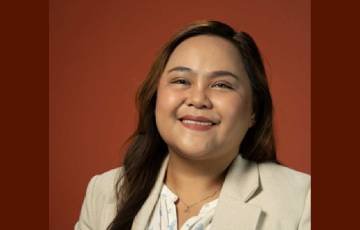- Resource Types
- Resource Languages
- Institutional Repository
About Site Language
WHDL is viewable in multiple languages. Use the pull-down menu to select a language to view the site.
I changed my language, but I’m still seeing resources in the other languages?
If a resource or text has not been translated into your selected language, it will appear in the initially added language. We are always looking for help translating these resources. If you can help, contact us!
WHDL - 00022087


click to copy
Pring, J (2022). Ugnayan: how the Christian faith and Filipino culture build relationships that help urban poor women survive and thrive. .
Pring, JoyUgnayan: how the Christian faith and Filipino culture build relationships that help urban poor women survive and thrive. . , 2022
Pring, JoyUgnayan: how the Christian faith and Filipino culture build relationships that help urban poor women survive and thrive. . , 2022
Pring, JoyUgnayan: how the Christian faith and Filipino culture build relationships that help urban poor women survive and thrive. . , 2022
This research explores the experiences of women living in urban poor communities. It aims to identify, understand, and articulate how the Christian faith and the Filipino culture enable them to create relationships for their survival, as well as for their flourishing as human beings created after God’s image. It is also the goal of this study to provide an indigenous theoretical model of development—one that is both in line with the tenets of the Bible and in touch with the uniqueness and intricacies of the Filipino culture. Transformational grounded theory, a research design that combines principles from participatory action research and grounded theory methodology, was employed for this study. Fifty women from urban poor communities in Antipolo, Taytay, and Quezon City, Philippines participated in the research. The data shows that women build relationships in two main loci: in their neighborhoods and the Christian centers in their communities. Also, employing open coding, axial coding, and selective coding, the data shows that the Christian faith and Filipino culture are instrumental to what women consider to be true development. From the participants’ data, the interweaving of Christian values and Filipino values creates relationships that are crucial for their progress. Christian values (faith, stewardship, harmony, generosity, wisdom, and love) and Filipino values (damayan, kapwa, loob, pagkakaunawaan) are the fiber or the threads to the relationships they share that serves as their organic safety net. An indigenous framework of development, “Banig: Development as Building Relationships through the Interweaving of Christian Values and Filipino Values,” was drawn from the analysis of the participants’ data. The definition of women from urban poor communities of development is not limited to financial and economic bounds—their view of development as having good ugnayan (relationship) with God, with one’s kapwa (neighbors), with one’s loob (inner self ) is closer to the Biblical definition of development as shalom. This work offers research-based and empirical evidence that when the poor understand development from the finest of their culture and the power of God’s Word, they begin to perceive beyond economics and begin to live lives of meaningful transformation.
This resources can only be access through the direct permission of the author.
3 Resources
The collection is concentrated on resources on transformational development in contemporary Asian context, and beyond.
1941
1945-1946
n.d.